
Filter News
Area of Research
News Topics
- Big Data (1)
- Computer Science (10)
- Cybersecurity (1)
- Exascale Computing (2)
- Frontier (3)
- Fusion (1)
- High-Performance Computing (3)
- Isotopes (1)
- Machine Learning (1)
- Materials (2)
- Materials Science (4)
- Microscopy (1)
- Nanotechnology (2)
- Neutron Science (1)
- Physics (3)
- Quantum Computing (22)
- Quantum Science (27)
- Security (1)
- Simulation (5)
- Summit (2)
Media Contacts
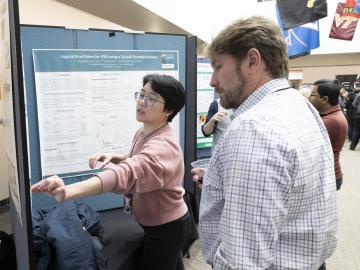
On Nov. 1, about 250 employees at Oak Ridge National Laboratory gathered in person and online for Quantum on the Quad, an event designed to collect input for a quantum roadmap currently in development. This document will guide the laboratory's efforts in quantum science and technology, including strategies for expanding its expertise to all facets of the field.
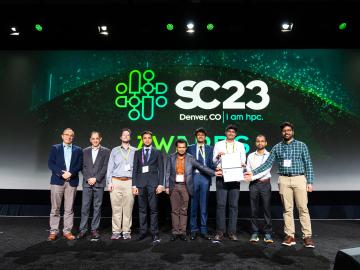
A team of eight scientists won the Association for Computing Machinery’s 2023 Gordon Bell Prize for their study that used the world’s first exascale supercomputer to run one of the largest simulations of an alloy ever and achieve near-quantum accuracy.
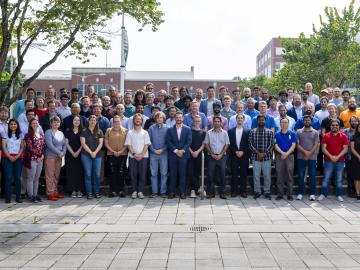
Hosted by the Quantum Computing Institute and the Oak Ridge Leadership Computing Facility, the fourth annual event brought together over 100 attendees to discuss the latest developments in quantum computing and to learn about results from projects supported by the OLCF’s Quantum Computing User Program.
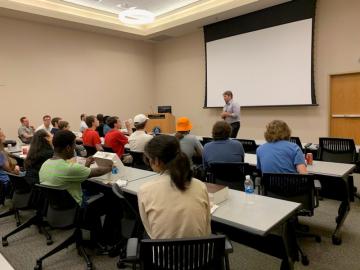
Quantum computing sits on the cutting edge of scientific discovery. Given its novelty, the next generation of researchers will contribute significantly to the advancement of the field. However, this new crop of scientists must first be cultivated.
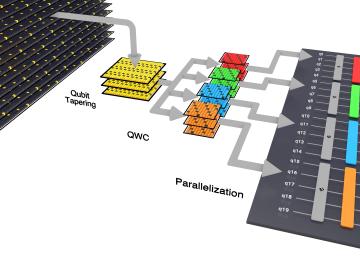
Using the full capabilities of the Quantinuum H1-1 quantum computer, researchers from ORNL not only demonstrated best practices for scientific computing on current quantum systems but also produced an intriguing scientific result.
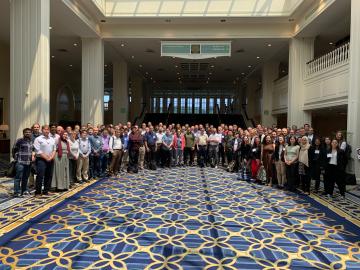
In late May, the Quantum Science Center convened its first in-person all-hands meeting since the center was established in 2020. More than 120 QSC members gathered in Nashville, Tennessee to discuss the center’s operations, research and overarching scientific aims.
For the third year in a row, the Quantum Science Center held its signature workforce development event: a comprehensive summer school for students and early-career scientists designed to facilitate conversations and hands-on activities related to
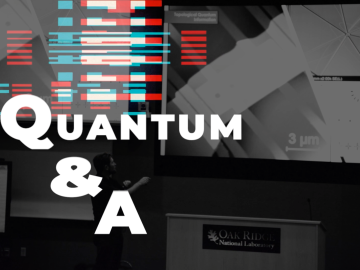
In mid-April, students from Webb School of Knoxville taking an advanced science class that focuses on quantum computing topics visited the Department of Energy’s Oak Ridge National Laboratory to tour its world-class facilities and discover the many career paths available in the ever-growing field of quantum information science.

Researchers used Oak Ridge National Laboratory’s Quantum Computing User Program to perform the first independent comparison test of leading quantum computers.
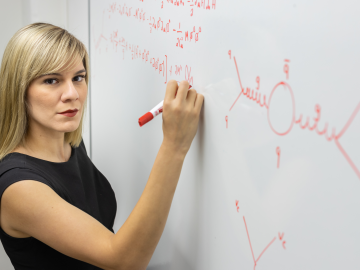
Andrea Delgado is looking for elementary particles that seem so abstract, there appears to be no obvious short-term benefit to her research.


